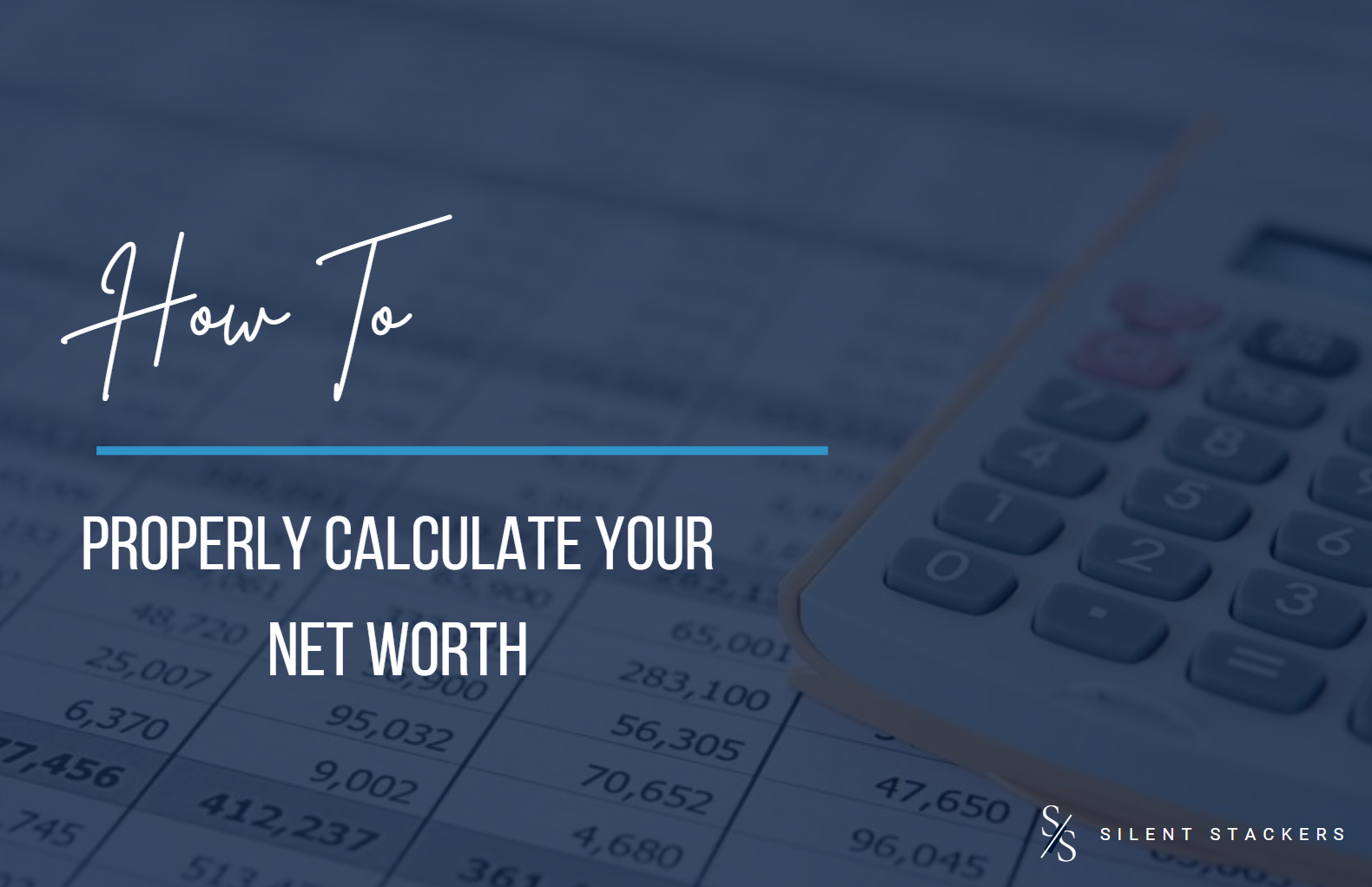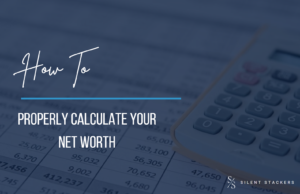Understanding your financial health is essential for making informed decisions about your future. Whether you’re planning for retirement, aiming to invest, or simply trying to get a clear picture of your current financial standing, learning how to calculate your net worth is one of the best ways to start.
Net worth is essentially the difference between what you own (your assets) and what you owe (your liabilities). It gives you a snapshot of where you stand financially at a given moment in time. But to get a truly accurate picture, it’s important to calculate it properly, considering all relevant factors.
In this blog post, we’ll explore how to calculate your net worth step-by-step, why it’s important, and how to use this knowledge to achieve your financial goals.
What is Net Worth?
At its simplest, net worth is calculated with the following formula:
Net Worth = Total Assets – Total Liabilities
- Assets are the things you own that have value. This can include your home, car, savings, investments, and other valuable possessions.
- Liabilities are debts or obligations you owe, like your mortgage, credit card debt, student loans, and other types of financial liabilities.
Why is Calculating Your Net Worth Important?
Knowing how to calculate your net worth provides insight into your financial progress. A growing net worth means that you’re accumulating more assets than liabilities, signaling financial health. On the other hand, a declining net worth could be a warning sign of poor financial habits, growing debt, or a need to adjust your approach to money management.
Knowing your net worth helps with:
- Financial Planning: Your net worth is crucial for long-term financial planning, like retirement, buying a home, or starting a business.
- Debt Management: By seeing how liabilities affect your overall financial standing, you can focus on paying down debts.
- Investment Strategy: If you have a clear understanding of your assets, you can allocate resources better for investments that align with your risk tolerance and goals.
- Emergency Preparedness: Knowing your liquid assets (cash or easily accessible funds) gives you insight into how well-prepared you are for financial emergencies.
Steps to Calculate Your Net Worth Properly
Step 1: List All Your Assets
The first step in calculating your net worth is to list everything you own of value. Here are some categories to consider:
- Cash and Cash Equivalents:
- Cash on hand
- Checking accounts
- Savings accounts
- Money market accounts
- Certificates of deposit (CDs)
This category represents the liquid part of your wealth, which you can easily access and use for day-to-day expenses or emergencies.
- Investments:
- Stocks, bonds, mutual funds
- Retirement accounts (401(k), IRA, etc.)
- Brokerage accounts
- Pension plans
- Cryptocurrency holdings
These are longer-term financial assets meant for growing your wealth. When calculating net worth, make sure you use the current market value of your investments.
- Real Estate:
- Primary residence
- Rental properties
- Vacation homes
- Land
When including real estate, estimate its fair market value (what it could sell for today). Don’t rely on the price you bought it for; the market value could have changed significantly.
- Personal Property:
- Cars, motorcycles, boats
- Jewelry, art, antiques, collectibles
- Electronics, furniture
While personal property can be difficult to value, many people use the resale value or an appraised value if applicable. Avoid overestimating the value of depreciating assets like cars.
- Business Interests:
- Ownership in a business (partial or full)
- Shares in private companies
If you own a business or have equity in one, the valuation can be tricky and may require a professional appraisal. For simple small businesses, use net asset value or a market-based approach to estimate worth.
Step 2: List All Your Liabilities
Next, you’ll need to make a list of everything you owe. Liabilities include:
- Mortgage:
- The outstanding balance on any home mortgage(s)
Mortgages are often one of the largest liabilities for most people. Be sure to list the current balance, not the original loan amount.
- Car Loans:
- The balance remaining on any auto loans
Like mortgages, list only the remaining loan balance. If your car loan is close to being paid off, it may have little impact on your total liabilities.
- Credit Card Debt:
- The total amount owed on all credit cards
Only include the balance, not your credit limit. Credit card debt is often high-interest, and reducing this liability should be a priority for improving net worth.
- Student Loans:
- The balance of your student loans
Student loans can often be a long-term liability, but like any other debt, it reduces your net worth until they’re paid off.
- Personal Loans:
- Any outstanding personal or payday loans
This includes any debt you owe to friends, family, or lending institutions that you’re obligated to repay.
- Other Liabilities:
- Medical bills, taxes owed, or other debts
Any other obligations, such as tax liabilities or legal settlements, should be included to get an accurate picture.
Step 3: Calculate the Difference
Once you’ve listed all your assets and liabilities, subtract the total liabilities from the total assets to get your net worth:
Net Worth = Total Assets – Total Liabilities
Step 4: Analyze the Result
If the result is positive, you have a positive net worth, meaning your assets exceed your liabilities. This is a good sign of financial health. If the result is negative, your liabilities outweigh your assets, and you have a negative net worth.
A negative net worth can occur for many reasons, especially early in your financial journey. For instance, young professionals may have student loans or a mortgage but few substantial assets. This can improve over time as you build wealth through savings and investments.
Step 5: Review and Update Regularly
Your financial situation is always changing. Real estate values fluctuate, investments grow (or decline), and debts get paid off. To get an accurate picture of your net worth, update your calculations at least once a year—or more frequently if you’re tracking specific financial goals.
Some people choose to update their net worth calculation quarterly, especially if they are actively managing investments or working on debt reduction. Others may do it annually as part of a broader financial check-up.
What’s a Good Net Worth?
Net worth varies widely depending on your age, income, and location. A good rule of thumb is to aim for a positive and steadily growing net worth as you age. You can also use benchmarks like:
- Early career (20s and 30s): Focus on building savings, paying off debts, and investing for the future. Having little to no debt and a positive net worth at this stage is a good start.
- Mid-career (40s and 50s): By now, you should be actively growing your wealth through investments and paying off large debts (like a mortgage).
- Pre-retirement (60s and beyond): At this stage, your net worth should ideally support your retirement lifestyle. Having no debt and significant liquid assets or retirement savings is crucial.
How to Increase Your Net Worth
If you’re aiming to boost your net worth, focus on two key areas: increasing your assets and reducing your liabilities.
- Increase Assets: Save and invest wisely. Contribute regularly to retirement accounts, invest in diversified assets, and increase your income through career advancement or side ventures.
- Reduce Liabilities: Pay down high-interest debt first, especially credit card debt. Consider refinancing loans for better interest rates and make extra payments on your mortgage or other large loans when possible.
Using Technology to Track your Net Worth
Using apps like RocketMoney can be a game-changer when it comes to tracking and growing your net worth. These apps streamline the process by automatically categorizing your assets and liabilities, giving you a real-time snapshot of your financial standing. RocketMoney, for example, connects to your bank accounts, credit cards, loans, and investments, helping you monitor spending, pay down debt, and reduce unnecessary expenses. By keeping your finances organized and highlighting opportunities to save or invest, apps like RocketMoney empower you to make informed decisions, set financial goals, and steadily grow your net worth over time.
Conclusion
Knowing how to calculate your net worth is an essential part of managing your financial health. It helps you understand where you are financially and where you need to go. By accurately calculating your assets and liabilities and reviewing them regularly, you’ll be able to make informed decisions that can lead to financial growth and stability.







